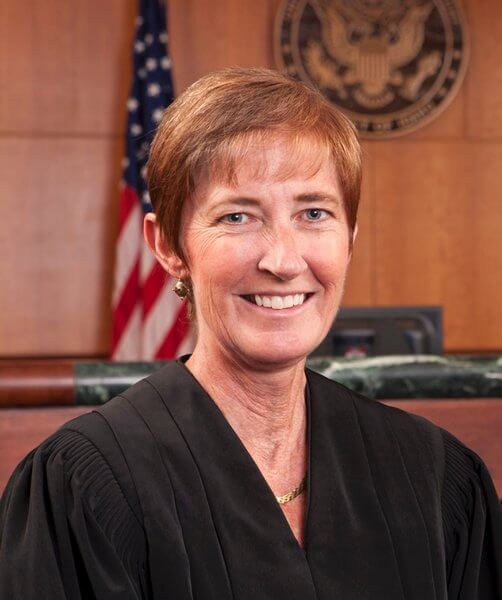A federal district court has ruled that Ohio’s refusal to issue corrected birth certificates for transgender people violates the US Constitution.
The December 16 decision by Judge Michael H. Watson came in a case brought by Lambda Legal and the American Civil Liberties Union on behalf of four transgender plaintiffs whose attempts to get their birth certificates changed to correctly identify their gender identity had been thwarted.
When the suit was brought two years ago, there were only three states that categorically prohibited such changes — Ohio, Kansas, and Tennessee. Since then, Kansas has settled a Lambda lawsuit by agreeing to change its policy. That leaves Tennessee as the last holdout.
Federal court finds state cannot provide even a rational basis for its prohibition
Watson’s opinion did not address what requirements Ohio may impose on a transgender individual seeking to obtain a new birth certificate. Some jurisdictions require proof of a surgical procedure or at some clinical treatment, others are satisfied with a doctor’s certification regarding gender identity, and some require merely a sworn declaration by the individual as to their gender identity.
The ruling from Watson, who was appointed to the bench by President George W. Bush, merely found that Ohio cannot categorically refuse to make such changes under any circumstances.
Ohio’s history on this issue has been inconsistent. For many years, state courts turned down attempts by transgender individuals to get judicial orders allowing them to change their birth certificates, but then the state did a turnabout and started allowing such changes. In 2016, however, Ohio reverted to its former prohibition. Watson noted that at least 10 people had obtained new birth certificates before the policy easing was revoked.
The Ohio law governing birth certificates provides simply that they can be corrected if information “has not been properly or accurately recorded.” In this litigation, the state claimed it was acting on the interpretation that the birth certificates were correct at the time of an individual’s birth.
The lawsuit on behalf of Stacie Ray, Basil Argento, Ashley Breda, and “Jane Doe” asserted that the state’s policy violated their due process privacy rights and their equal protection rights under the 14th Amendment, as well as their First Amendment free speech rights. Watson ruled in their favor on 14th Amendment grounds and so did not take up their First Amendment claim.
Each plaintiff explained how having a birth certificate that did not correctly reflect their gender identity caused practical problems, essentially misgendering them as well as outing them as transgender when they were required to provide their birth certificate. Watson cited a 2015 survey of transgender Americans in pointing to the significant risk of harassment, physical violence, discrimination, and denial of government benefits they face as an important reason to allow them to amend their birth certificates.
Given that the constitutionally fundamental right of privacy was involved, Watson applied a strict scrutiny standard to the plaintiffs’ due process claim, under which Ohio’s policy was presumed to be unconstitutional unless the state was able to show a compelling justification for it.
On the equal protection claim, Watson found that many federal courts now agree that heightened scrutiny applies, under which the state must show an exceedingly persuasive reason for its policy. Courts have applied heightened scrutiny to sex discrimination claims — and this past June’s US Supreme Court decision in the Bostock v. Clayton County case found that discrimination because of transgender status is sex discrimination under the Title VII employment provisions of the 1964 Civil Rights Act.
On both due process and equal protection grounds, Watson concluded, the state failed, not even providing a rational — never mind compelling or exceedingly persuasive — justification for the policy. Having allowed transgender people to get new birth certificates for a period up until 2016, the state should have articulated a reason why it had rescinded that policy, but it could not credibly do so. What the court left unstated was the likelihood that the change in policy was entirely political.
The state’s argument that it has an interest in having accurate birth records was fatally undermined by the fact that birth certificate changes are allowed in many other circumstances, such as in the case of a legal name change or to substitute adoptive parents for the birth parents.
Watson left it to the state to determine what requirements it may now impose on trans people in amending their birth certificates.
Though Ohio could appeal Watson’s ruling to the Sixth Circuit Court of Appeals, that bench has already gone on record finding gender identity discrimination to be sex discrimination in the case of the late Michigan transgender funeral director Aimee Stephens, whose employment discrimination case was part of the high court’s Bostock decision.
Lambda attorneys who worked on this case included Kara Ingelhart and Peter Renn, who were joined by Malita Picasso and John Knight of the ACLU’s LGBT & HIV Project and Freda Levenson, Susan Becker, Elizabeth Bonham, and David Carey of the ACLU of Ohio.
To sign up for the Gay City News email newsletter, visit gaycitynews.com/newsletter.



































